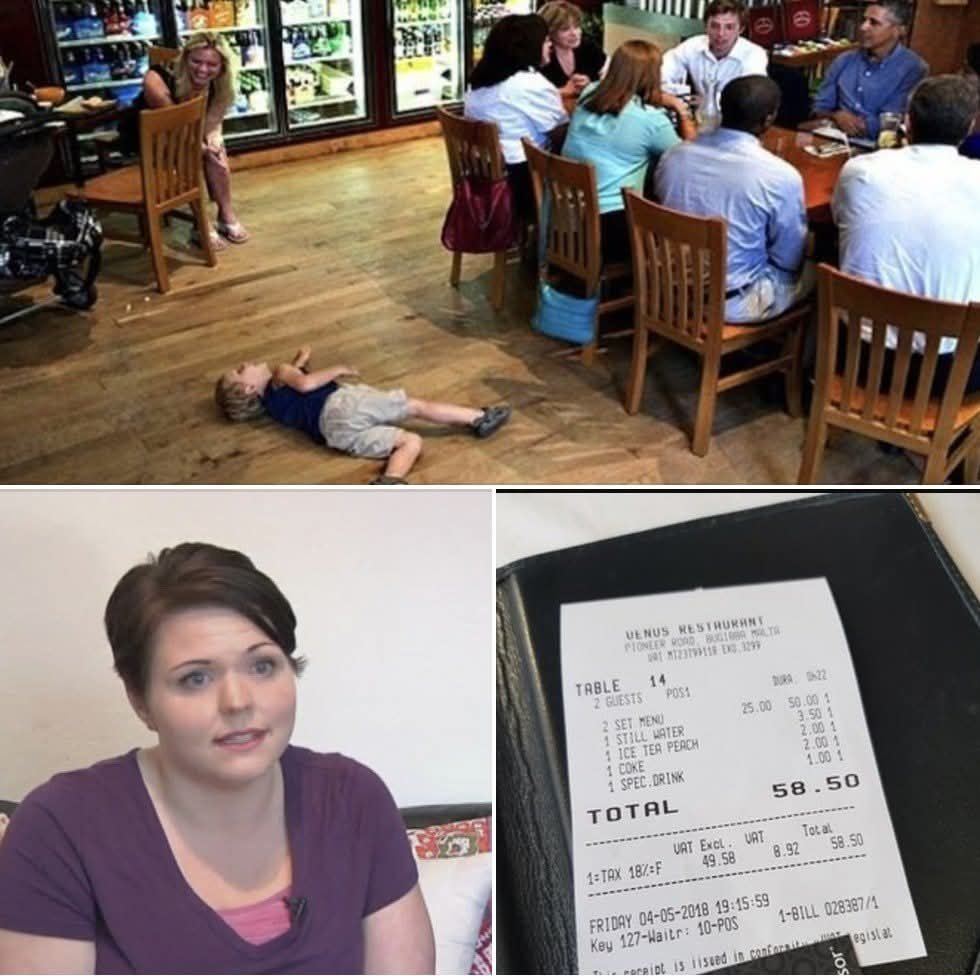Couple Claims Restaurant Penalized Them for ‘Inadequate Parenting’ – Eatery Owner Unveils the Reality
The ‘Parenting Penalty’ Debate: Examining Toccoa Riverside Restaurant’s Controversial Policy
Toccoa Riverside Restaurant is located in the quiet town of Blue Ridge, amidst the scenic beauty of North Georgia. Known for its charming location near the Toccoa River and surrounding mountains, this restaurant has long been a favorite among locals and tourists alike.
However, it has recently found itself at the center of a heated debate over the policy, which has divided its patrons and fueled discussions about parenting, responsibility, and the boundaries of acceptable behavior in public dining establishments.

The ‘Parenting Fine’ Controversy
The controversy began when an aggrieved customer took to the popular internet forum Reddit to claim that the restaurant had slapped a “$50 parenting penalty” on their account due to their children’s alleged misbehavior during their visit. According to the boarder, the reason for the additional charge was the behavior of their children, which outraged and confused them. The Reddit post quickly gained attention, drawing a mix of support and criticism from users and prompting restaurant owner Tim Richter to respond to the allegations.
View of the restaurant
Tim Richter, the restaurant’s owner, explained the circumstances when asked to respond.
He said that while the facility added a premium to cover additional expenses during the COVID-19 outbreak, it never actually penalized a patron for their children’s behavior. He recounted a case where a family brought in nine very rowdy children but pointed out that they were only given a warning.
Richter said, “We want parents to be parents.
Public feedback: Wide range
Consumers’ views on politics were not all the same.
Laura Spillman, a visitor, was amazed. “This is absurd. You shouldn’t be charging for cute babies,” she said. Anne Cox, on the other hand, thought that a possible fee could serve as a useful tool to remind parents of their responsibilities.
“Children need to learn behavior from their parents. They need to realize that there are other individuals in the world,” Cox said.
Federico Gambineri was concerned about the policy when he and his toddler ate at a restaurant. “If I was charged, I would be unhappy and probably wouldn’t recommend the place,” he said. More frequent customer Jack Schneider stated, “We’ve all been at tables where we think, ‘Do something about that kid.’ But ultimately it’s up to the parents.”
Implications and takeaways
The restaurant is used to a more subdued clientele thanks to its scenic location near the Toccoa River and the mountains. Cars line up along the road during peak dinner hours, a sign of the restaurant’s popularity. However, the incident caused customers to rethink what constitutes appropriate behavior in a public dining room.
“It’s not just restaurant policy; it’s a societal question of what we consider respectful behavior,” says Jack Schneider.
In the contentious debate over whether it is fair to penalize parents for bad dining behavior, differing opinions are expressed. Currently, the alleged “parenting fine” levied on Toccoa Riverside Restaurant has acted as a spark for a much larger conversation about public behavior and parental responsibility.
In conclusion, the “Parenting Fine” controversy at the Toccoa Riverside restaurant not only stirred debate within its community but also sparked a broader social conversation about the boundaries of acceptable behavior in public dining establishments. The incident serves as a reminder that dining with children can present challenges for parents and businesses alike, requiring a delicate balance between enjoying the food and maintaining a respectful atmosphere for all diners.
While opinions differ widely on the restaurant’s alleged policy, it is important to note that the incident has prompted reflection on the role of businesses in enforcing standards of conduct. It raises questions about the authority of institutions in shaping social norms and the responsibility of parents for managing their children’s behavior in public spaces.
As this dialogue continues, it invites individuals to consider their perceptions of considerate behavior and the complexities of dining with children. It’s a reminder that respectful and courteous behavior benefits everyone in the community, and finding common ground when dealing with these issues is essential.
The ‘Parenting Fine’ controversy at Toccoa Riverside Restaurant ultimately highlighted the intricacies of parenting, public etiquette, and the responsibilities of parents and businesses alike in promoting a harmonious dining experience for all. It’s a conversation that challenges us all to reflect on the values and expectations we hold in our society and the importance of finding respectful and inclusive solutions to such complex challenges.
